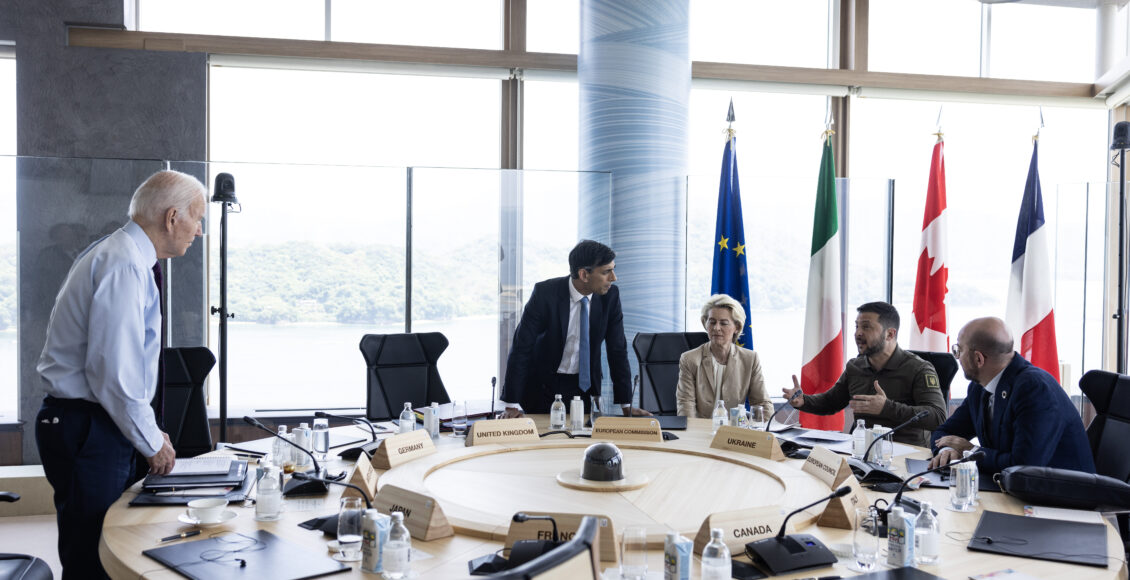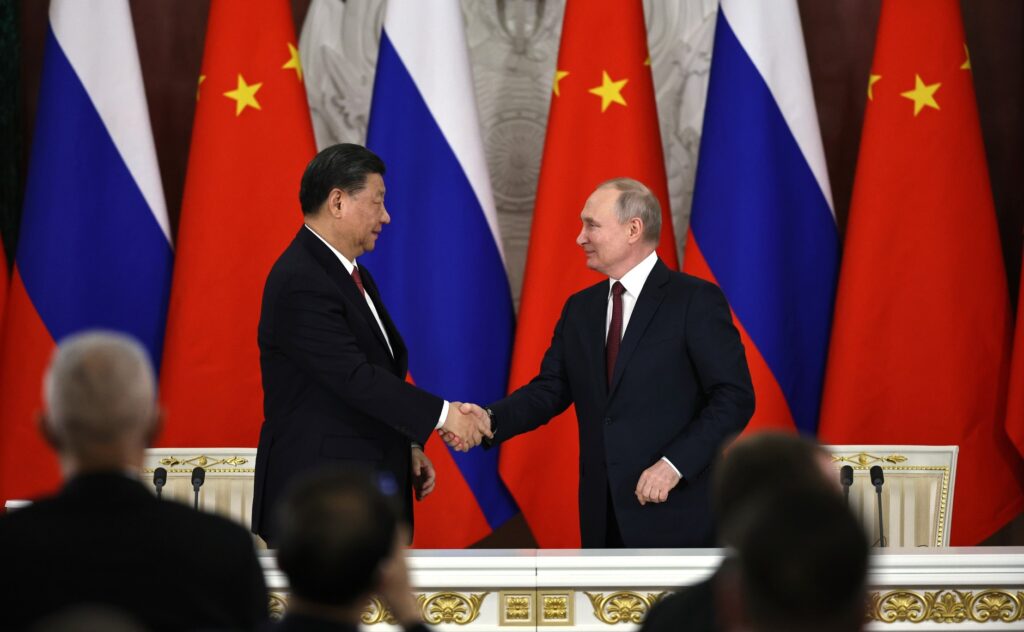Opinion | Keep Calm and Carry On: In defence of the West’s prudence in the Ukraine war

As the sludge recedes in southern Ukraine, the counter-offensive has begun and the West has remained indecisive over the rapid armament of Ukraine. To many, prudence seems to be the foremost obstacle. Yet this prudence is not as devastating as it appears. That is not to say that it is acceptable for Ukraine to suffer the ordeal of slow torture, nor is it to deny them the means for Ukraine to deal a decisive blow to Putin. But this prudence has so far kept alive the prospect of recovering south-eastern Ukraine, for it has kept Chinese involvement out of the war — in which China has the power to turn the tide against Ukraine swiftly. As such, Ukraine has matched Russia evenly on the battlefield for the last two years. All Russia could rely on is a vast but incompetent army as it confronts Ukraine’s smaller army equipped with advanced and effective weaponry. But from now on, the West has to rapidly support arms in order for Ukraine to succeed.

The war is in a balanced state. The West’s prudence has tempered any justification for greater Chinese involvement. In fact, Chinese involvement has been limited; they were merely providing light armaments. Although China and Russia have continually accused the West of escalating the conflict, the awkward truth is that the West has not added fuel to the fire — China’s lack of escalation is its indirect recognition of this reality, too. The West has only supplied Ukraine when its stock is expected to run out soon. The former conceded to sending Leopard and Abrams tanks only when Ukraine would be close to using up its Soviet tanks. Had it not been for the dwindling stock of tanks, Zelenskyy could not have mobilized enough public pressure to ‘free the Leopard’ from export controls, and the West would most certainly have slapped him down. Supply at the eleventh hour is the essence here. It means Ukraine has not been and continues to be prevented from being an existential threat to the Russian homeland. Given that China claims to be neutral, it is untenable for China to claim Russian self-defence and, thus, supply more resources. The war status continues to fall short of the point that warrants greater arms support and more involvement from China.
Some may argue that China’s self-interest in the war is not as clear-cut. After all, China is surprisingly benefitting from the war. A shift in attention has consigned its human rights abuses against Uyghurs and Hong Kong to the fringes of the West’s mind. Most unsettling is the potential reality that China has become the kingmaker in this war; both Europe and Russia are vying for its support. But China does not need to set its eyes on such a lucrative prize, that is, to be the kingmaker. It could settle for merely Putin’s survival. This path would destine China to have a limited involvement. In this sense, then, the West’s prudence perhaps impinges little on China’s involvement. Further, it is unlikely that China is a major preoccupation of the West in this war. There are more pressing issues. On the one hand, the dwindling stock of ammunition concerns European allies. On the other — and for Germany in particular — the harrowing memory of militarism worries politicians.

However, it would be naive to believe that China does not harbour an ambition greater than simply deciding the outcome of the war. Bizarrely, a grand calculus for the world was disclosed in the form of a slip of the tongue that post-Soviet states did not enjoy ‘an effective status within international law’ — a remark by the Chinese ambassador to France, Lu Shaye. In effect, Lu dismissed the sovereignty of post-Soviet states. It would be foolhardy to believe that it was merely a personal opinion, as the Chinese Chargé d’Affaires dismissed. Radio Free Asia published a perceptive piece regarding Lu’s outburst; his gaffe shares President Xi’s, as well as Putin’s, lament about the dissolution of the USSR. More importantly, Lu’s gaffe aligns with the multipolarity narrative — that is, carving the world into spheres of influence with China and Russia having the same standing as the US. To China and Russia, mediocre states in their spheres would simply be gambling chips held by the great powers. The multipolarity narrative reflects China and Russia’s ambition to dismantle the US-led world order. At the current trajectory of the war, a Ukraine victory would testify to the persistence of US hegemony, setting back Xi’s ambitious design for the world. Thus, Xi is inclined to further support Russia.
Moreover, Russian geopolitical influence is still of value to China. The least of China’s wishes is for Russian influence to diminish to the extent that it could not even attempt to counter U.S. hegemony in Europe. If Russia were to collapse, the ensuing target would be China. However, it remains difficult for China to get its hands dirty since its narrative of the war ties its limbs. As the West’s prudence has defended against further violence, an unprovoked escalation by China would flip the proverbial table. China would become the cause of escalation. Additionally, it would smear the appeal of a multipolar world for the rest of the world; after all, it is only enticing if it supposes more checks and balances on any power dominance. Grudgingly, China has now resorted to heralding a peaceful resolution to the war. Its aim is to keep the status quo and keep Russian influence from further abating while maintaining a pro-Russian neutrality. Therefore, the West’s prudence has deterred China from more pronounced involvements and has kept alive the opportunity for a counter-offensive.
The reality on the ground right now is that weapons from the West come in erratic intervals. The delivery of Leopard tanks in batches means that Ukraine cannot buy ammunition in bulk. Moreover, the counter-offensive has slowed. Not because the Russian army is militarily capable (it is rotten to the core with corruption), but rather, the pace is slow because of the difficulties in traversing swathes of land mines and the Dnieper river. Hence, Ukraine is saving up on tanks and relying on artillery for now. But once Ukraine crosses this impasse and deploys the supplies in bulk, it could be too little too late for Russia. A prompt response from China might salvage little as well. So the balancing act of the West has arguably bestowed Ukraine with an element of surprise to carry out a decisive and short blow to the southeast. The irony is that both China and Russia logically anticipate this surprise, yet neither could likely do much in response to it. In the wake of that decisive blow, it is unlikely that China could haphazardly bolster its support for Russia; it takes time for the narrative of China supporting Russian self-defence to form. This comes at the cost of heavy casualties. By any means, Ukraine gets to keep this element of surprise.
All in all, prudence is not as devastating as it seems.
Slava Ukraini!
Featured image: From left to right, U.S. President Joe Biden, U.K. Prime Minister Rishi Sunak, President of the European Commission Ursula von der Leyen, President of Ukraine Volodymyr Zelenskyy and President of the European Council Charles Michel at the G7 Hiroshima summit in 2023. “Prime Minister Rishi Sunak attends the G7 Summit in Japan” by Simon Dawson / Number 10 is licensed under CC BY-NC-ND 2.0
Edited by Eliza Yip.
